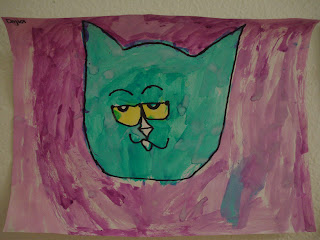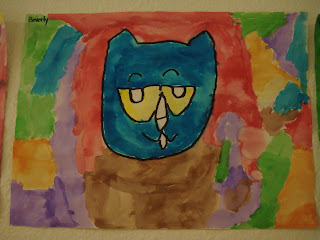(Click above for more Saturday Sayings.)
This one can be difficult to pull off. When it comes to writing, it's easy to look at a piece and see all the things the writer is not doing. What they are doing can be covered up by everything else.
One of my little writers was more than reluctant when we first started writing workshop. Defiant would be a more appropriate word actually. He's come around and stays very busy during writing workshop. When I look at his pieces, I don't see any thought put into the letters he's writing. The random letters are a problem, and I'm nudging him to show me what he can really do, but more than anything I'm celebrating what he is doing. He's opening up his writing folder. That's a big step for him.
Another one of my writers has an incredibly difficult time staying on-task during writing workshop. She's lucky to accomplish anything and so are her neighbors who she enjoys distracting. As a result, she and I had the opportunity to spend a few lunch times working together this week. It allowed me to see what she's capable of. She can mostly hear the beginning and ending sounds in words, which unfortunately seems lightyears away from where I'd like her to be right now. The last few days she's been able to mostly hold it together during writing workshop. I was able to celebrate the fact that mostly on her own she heard some sounds in words. A few letters on the page might not mean much to anyone else, but to me it spells success for this little one.
It takes effort and a little patience to sort through all the things we wish they were doing in order to see what's actually going well. It's worth it, both for them and for us.



































